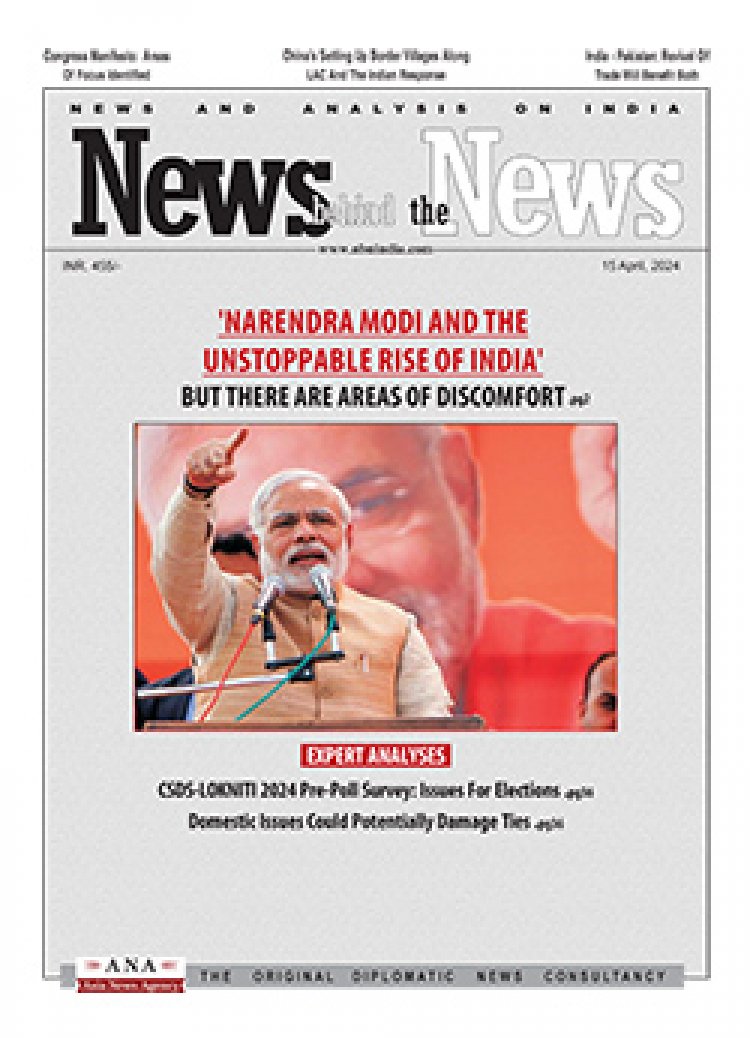H.E. Mr. Lars-olof Lindgren

Sweden celebrated its National Day on June 6. On this important occasion the Ambassador of Sweden to India, H.E. Mr. Lars-Olof Lindgren, spoke to Asia News Agency, publishers of News behind the News, on a variety of issues concerning bilateral relations between India and Sweden.
ANA: Bilateral trade between India and Sweden has been expanding ever since Ericsson sold its first switching systems to India in 1903. Apart from Ericsson, ABB, Volvo to name a few others, are familiar brands for Indian customers. Excellency, do Swedish companies see the need to upscale their products and their marketing in India in the present environment?
H.E.: Yes, there are many possibilities. The just released Business Climate Survey shows that many Swedish companies are interested in trading with India. The survey is very interesting. It brings out the larger figures as well as the details of Swedish companies’ perception about business climate in India. Seventy per cent of them want to double their investments in India. Swedish companies are very much into increasing their presence. Indian companies are too expanding in Sweden.
ANA: Indian exports to Sweden mainly include textiles, garments and now IT services. Sweden, on the other hand, largely exports machinery to India. But India's share in Swedish exports is only 1.3 per cent while its share in Swedish imports is 0.5 per cent. Excellency, in your opinion what are the areas of expanding the trade between the two countries?
H.E.: There is a possibility of expansion in every area. You cannot mark out any specific area which is more suitable than the others. Life Science and Medical Car is one important area. There is a lot that can be done in the areas of energy, renewable resources and energy conservation. Nuclear energy also has a lot of potential and as India is in the process of becoming a part of international community in this field, a partnership can really be of utmost importance. In the entire field of energy, we can do a lot together. Sweden can offer many things to India. One crucial point is that Swedish industry and services are very hi-tech in nature. Research and development is one of the main focuses of every initiative. Sweden is among top nations in the world when it comes to R&D. Four per cent of our GDP goes into this field. The other field of expertise is of our course defence. This industry is also one of the most modern in the world. We can also provide new solutions in the field of engineering, retail and production systems. All these factors combine make us an important destination for India and its companies. We are also improving and reinventing all the Sweden celebrated its National Day on June 6. On this important occasion the Ambassador of Sweden to India, H.E. Mr. Lars-Olof Lindgren, spoke to Asia News Agency, publishers of News behind the News, on a variety of issues concerning bilateral relations between India and Sweden. time. Sweden is not guarding the knowledge it has unlike many other countries which share very little of their total knowledge base. We can learn from India too, an example being the health care sector. So, it’s a two-way process.
[expand title="Read More"]ANA: India is in the process of signing a Free Trade Agreement with the European Union. Excellency, is Sweden playing a role in this? If yes, in what manner?
H.E.: Sweden is one country in the EU which is pushing hard for free trade solutions to improve economic performance in the world. From our own experience we know that free trade is good for development. From being one of the poorest countries in Europe in the 1800s, we became one of the more affluent nations in modern times. There are many factors responsible for this, but to a large extent it is the open trade system. We concentrated on what we were good at producing ourselves and imported what we were not good at. By this specialisation we were able to improve the living condition of our citizens. We became a member of the EU in 1995 and one of our greatest contributions is that we have always asked for Europe to be more open to trade with other parts of the world. I have first-hand experience of such negotiations as I have served in the trade area. Obviously all the countries are not on the same side. We have to fight constantly for more and more opening up of the economies. But this does not work in the long run.. Some countries think that they are saved by protecting themselves from competition. It is in our favour that the dominant position in the EU is that of the people who support our understanding. We are pushing for an FTA with India. We believe that it will be good for India as well as Europe. It will be fantastic if we have an agreement soon.
ANA: Excellency is it correct that there will be a shortage of labour in Sweden and that your country has made the migration for people outside the European Union easier. India, on the other hand has a surplus of human resource. Is there a possibility of establishing synergy in this area and if yes, in which key sectors?
H.E.: Europe as a whole and many other countries are faced with the problem of ageing population where there will fewer people working compared to dependents. A lot of people would retire without enough people to replace them. China is also to facing the same problem due to their population policy. Among the European countries, Sweden is not the worst affected. But nonetheless, we are also faced with this problem. We have changed legislation with regard to immigration from outside Europe. Within the EU there is free movement of labour. Opening up Sweden's borders for non-EU citizens has taken place recently. It is a market-driven immigration system where companies which need to recruit but cannot find enough people within the EU can recruit from non-EU countries. And if they ensure that they can give similar work conditions to others as they would to a Swede – same wages etc. – then it will be easy for them to recruit from non-EU.
















